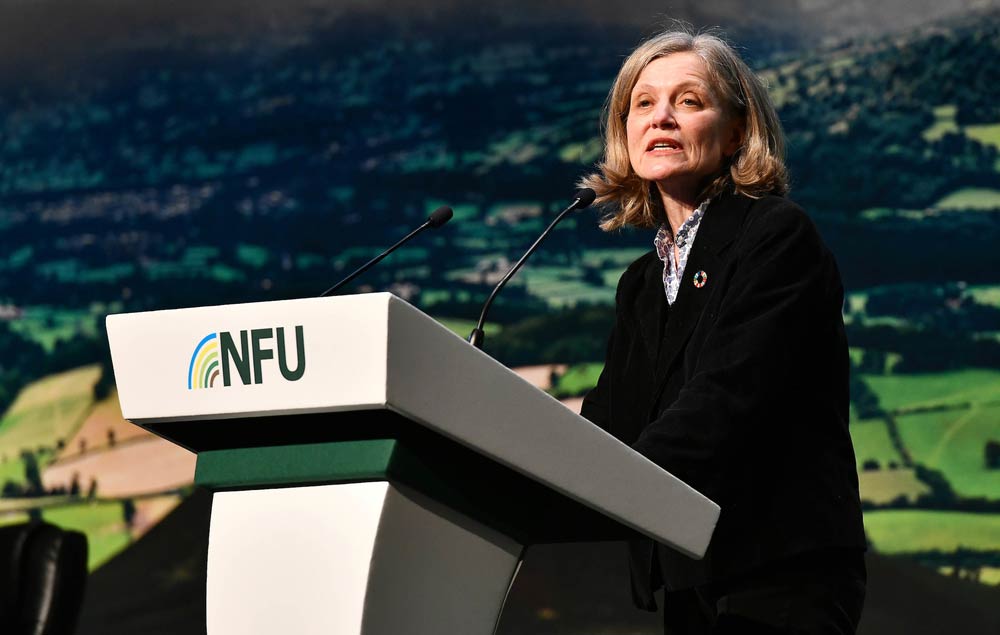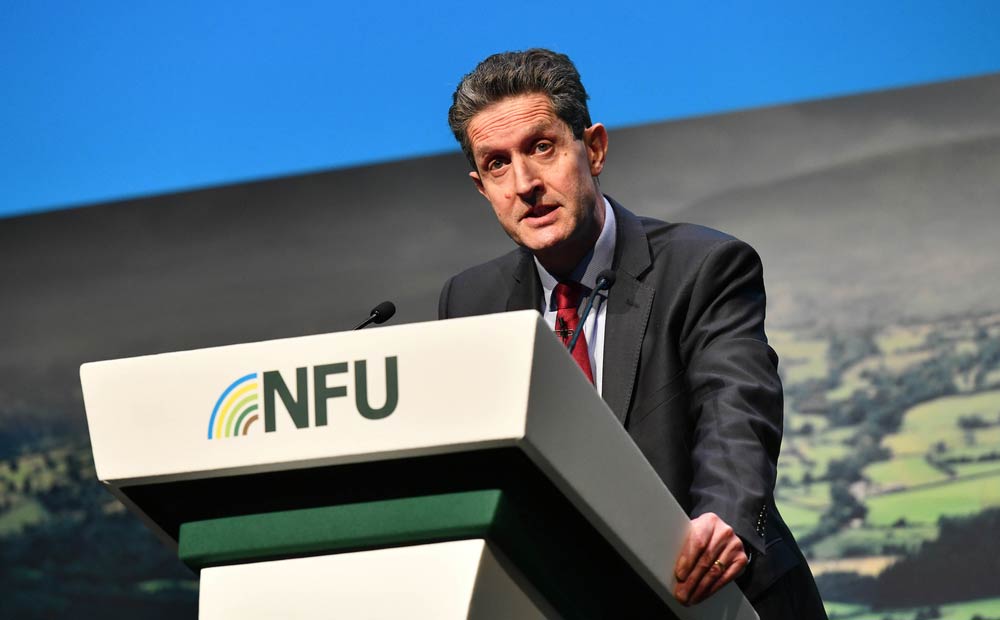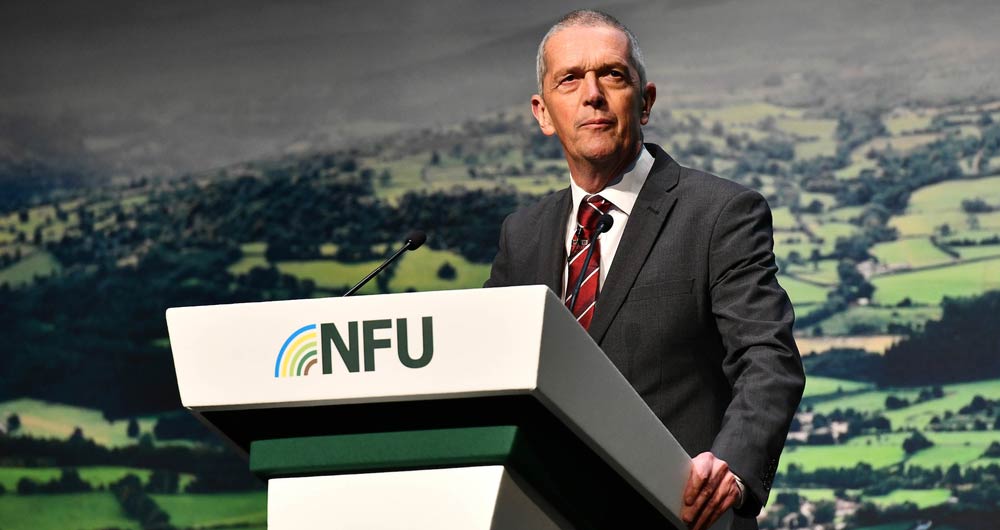Speakers:
- Myles Allen, Professor of Geosystem Science, University of Oxford
- Emma Howard Boyd, chairman, Environment Agency
- Phil Jarvis, NFU environment forum chairman
Chaired by:
NFU Deputy President Guy Smith
The NFU has launched the new Net Zero: Farm Status Indicator at a conference session. The online tool is a good starting point for farmers wanting to assess emissions from their farm and suggests practical ways of reducing them.
Speaking about the new tool, NFU President Minette Batters said: "Our ambition for a net zero contribution to climate change across the whole of agricultural production by 2040 is a national aspiration, not an expectation that every farm can reach net zero. Every farm will start the journey to net zero from a different place and will need a unique action plan. It is important to start that journey by assessing the likely emissions sources on farm, which is where the NFU's Farm Status Indicator can benefit, helping members take an initial first step on their own net zero plans."
“I think what you’re doing with the farm status indicator is a fantastic step in understanding climate data,” added Environment Agency chairman Emma Howard Boyd at the session.

Pictured above: Emma Howard Boyd, Chair, Environment Agency
With the UK hosting a major global summit on climate change later in the year, NFU environment forum chairman Phil Jarvis outlined some of the major actions that farming has taken in recent years to address the issue. Most significantly, he said, this includes the NFU’s ambitious target to achieve net zero greenhouse gas emissions across the whole of England and Wales by 2040 – a full 10 years ahead of the UK’s wider ambition to be net zero by 2050.
Crucially, he added, this would involve three central pillars: increasing farming’s productive efficiency, improving land management and land use to capture more carbon, and boosting renewable energy and the wider bio-economy. “UK farming already has a good story to tell; we should be held up as a global exemplar of agricultural systems," he added.

Pictured above: Phil Jarvis, NFU environment forum chairman
Climate scientist Professor Myles from Oxford University stressed that urgent action is needed to address climate change; in a farming context this could include conserving the carbon already in our pastures and grasslands, and understanding how to store more for the good of society. Turning to the livestock sector, he did, however, stress that 'it’s not the cow, it’s the how,' and reiterated that responsible meat and dairy production is absolutely compatible with climate goals. He also added that the scientific community had work to do to improve the understanding of both climate data and how emissions, particularly of methane, are calculated.

Pictured above: Professor Myles Allen, Oxford University Centre for the Environment
Achieving net zero - meeting the climate change challenge
This page provides an overview of:
- How the farming industry is in a position to be part of the solution to climate change
- What the NFU is calling for to help farmers work towards implementing solutions
- Changes you can make on farm as part of your day-to-day business decisions
Use the Net Zero: Farm Status Indicator
In a thought-provoking speech, Environment Agency chairman Emma Howard Boyd stressed how important it was to lower greenhouse gas emissions, but also to become more resilient and adaptive to the impact of climate change and extreme weather events. Citing the impact of Storm Ciara and Storm Dennis, she added: “As we’ve seen in recent weeks, we are in unchartered territory with our climate. What we are seeing is not normal both in terms of drought and flooding. We have to work together to develop the big solutions to the big challenges of climate change.”
See more of our coverage from NFU Conference 2020:
- NFU elects officeholder team
- NFU20: British farm standards must be the benchmark in future trade deals
- NFU20: Defra Secretary George Eustice talks flooding, ELMs and food standards
- NFU20: Business backs British standards
- NFU20: How we are inspiring our nation's schoolchildren
- NFU20: Leicestershire farmer honoured for grassroots commitment
- NFU20: Safeguarding our food and farming standards
- NFU20: Putting IPM at the top of the agenda
- NFU20: Beyond the CAP - the future of farm support
- NFU20: Animal health and welfare - protecting and improving our reputation
- NFU20: Psychological impacts highlight the importance of combating rural crime
- NFU20: How can technology break through the barriers facing the arable sector?
- NFU20: An ambition for growth in horticulture
- NFU20: Learning lessons for the UK's sugar beet production
- NFU20: Livestock session busts myths on meat
- NFU20: Poultry's positive position to farm without barriers
- NFU20: Promoting, growing and protecting British dairy
In case you missed it, here are some easy ways to catch up with the highlights from both days at the ICC, Birmingham:
